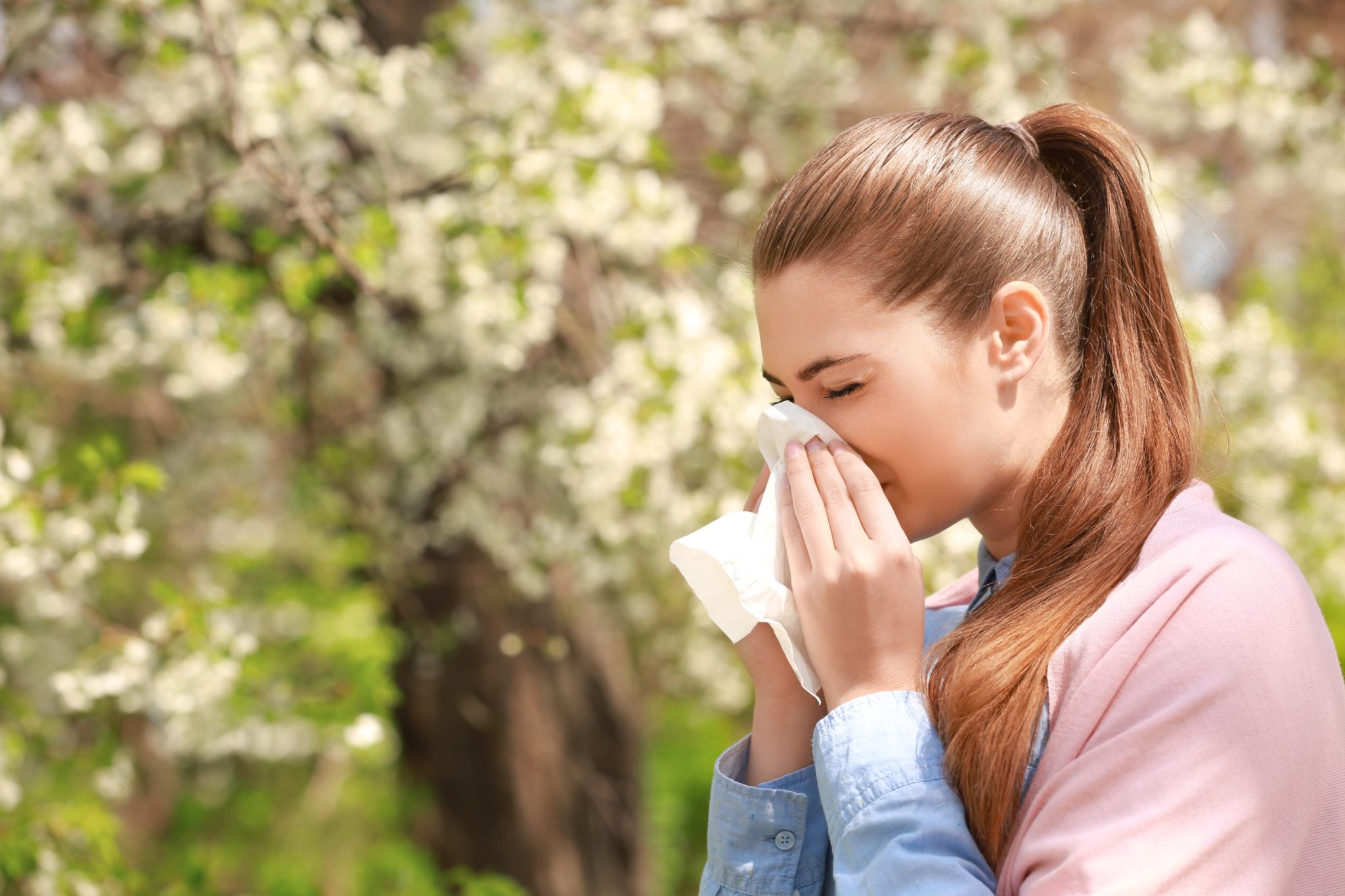Well – we’ve seen the evidence firsthand: a thin, yellow veil of pollen settled ominously on our porches and windshields. This can only mean that the 2022 pollen season is taking over. As a consequence, so are runny noses! We may begin to wonder, is it really just allergies? Could it be a virus, or even a bacterial infection? While over-the-counter antihistamines and nasal sprays may be enough to clear our heads in some cases, sinus symptoms and allergy flares remain one of the most common reasons people visit their primary doctor in the springtime. Although seasonal allergies have some of the same symptoms as infections, such as the all-too-familiar combo of runny nose and congestion, they are indeed separate conditions that require different methods of treatment.
Is it my allergies? Is this a cold? Or do I have a sinus infection?
Allergies are triggered by allergens, so cleverly named, that can cause your body’s immune system to overreact a bit. The causative allergen can vary from person to person – it may be dust, pets, or in this spring’s case, pollen. The body’s overreaction releases a chemical called histamine, the culprit for those distinctive allergy symptoms: itchy/watery eyes and clear/watery mucus. That’s why taking a non-drowsy antihistamine daily can be a true game changer if you are having an allergy flare in response to the seasonal shift.
On the other hand, the common cold is a viral infection. Colds can cause some symptoms that are similar to seasonal allergies like sneezing, runny nose, congestion, cough and fatigue. However, there are a few symptoms that can alert you it is more likely to be a virus: a fever, muscle aches/pains, and that lovely thick, yellow or green mucus. These symptoms can last for about 7-10 days but sometimes the virus can travel into your sinuses and can develop into a sinus infection.
The sinuses are small air-filled cavities in the skull whose job is to produce mucus that protect us from inhaling pollutants and allergens. An infection of the sinuses involves inflammation of those protective mucous membranes. When they become inflamed, the swelling can block the opening to the sinuses, trapping mucous and air inside. This blockage is what causes that heavy, tender feeling in the front of your face. Inflammation of the sinus cavities, also called sinusitis, can occur as a response to allergies, viral or bacterial infections. Occasionally, antibiotics may be useful to help clear bacteria from the sinuses.
What is a sinus cocktail shot?
There are various treatments for allergic rhinitis and sinusitis; some folks get by just fine with over-the-counter products, while others require prescription drug therapy. To really knock out the symptoms, combination therapy is often needed. Combination of vitamins, antihistamines, steroids, or even antibiotics have their place in treatment. Hence, the popularity of the sinus cocktail shot. It’s a combination of treatments all wrapped up in one injection, rather than taking several days’ worth of pills. Giving medications intramuscularly allows it to work more quickly and hang around a bit longer than oral medications. Most sinus cocktail shots contain an anti-inflammatory medication, such as a steroid, to tackle the inflammation that is caused by both allergic rhinitis and sinusitis. However, the combinations vary and can be tailored to address your specific symptoms. Anecdotally after a sinus cocktail, some patients notice an increase in energy and relief of congestion in just a few hours. But really, is this the holy grail of cold medicines? And, what’s the harm?
What’s the harm?
Clinical trials have compared the efficacy of steroids taken by mouth to injected steroids in treating asthma, and found no increase in side effects between the two. In fact, one study has shown fewer side effects with an injection. Yet, either way, steroids can increase blood sugar and blood pressure, so steroids are not ideal for people with diabetes or hypertension. Additionally, antihistamines can cause drowsiness and if used in a sinus cocktail may not be appropriate for elderly patients or patients with a history of prostate issues.
Some instances of vasovagal syncope have been reported with intramuscular injections of any type – no matter what the ingredients – in young females. Vasovagal syncope is a term for when lightheadedness and blood pressure changes may lead to a fainting spell. Because of this, it is a safe practice to have a provider monitor you for at least 15 minutes after any injection.
Despite these risks, a proper evaluation can rule out those patients who should not receive a sinus cocktail, and can determine the optimal ingredients for those who can!
How ZüpMed can help
Our providers are skilled in diagnosing allergic rhinitis, infections, sinusitis, and can determine if a sinus cocktail is appropriate for you. We will create a treatment plan individualized for you so you can nip your symptoms in the bud and start to feel better soon. Call and speak to any of our providers at 901-701-1010 if you have any questions or concerns.
 Schedule Now
Schedule Now
